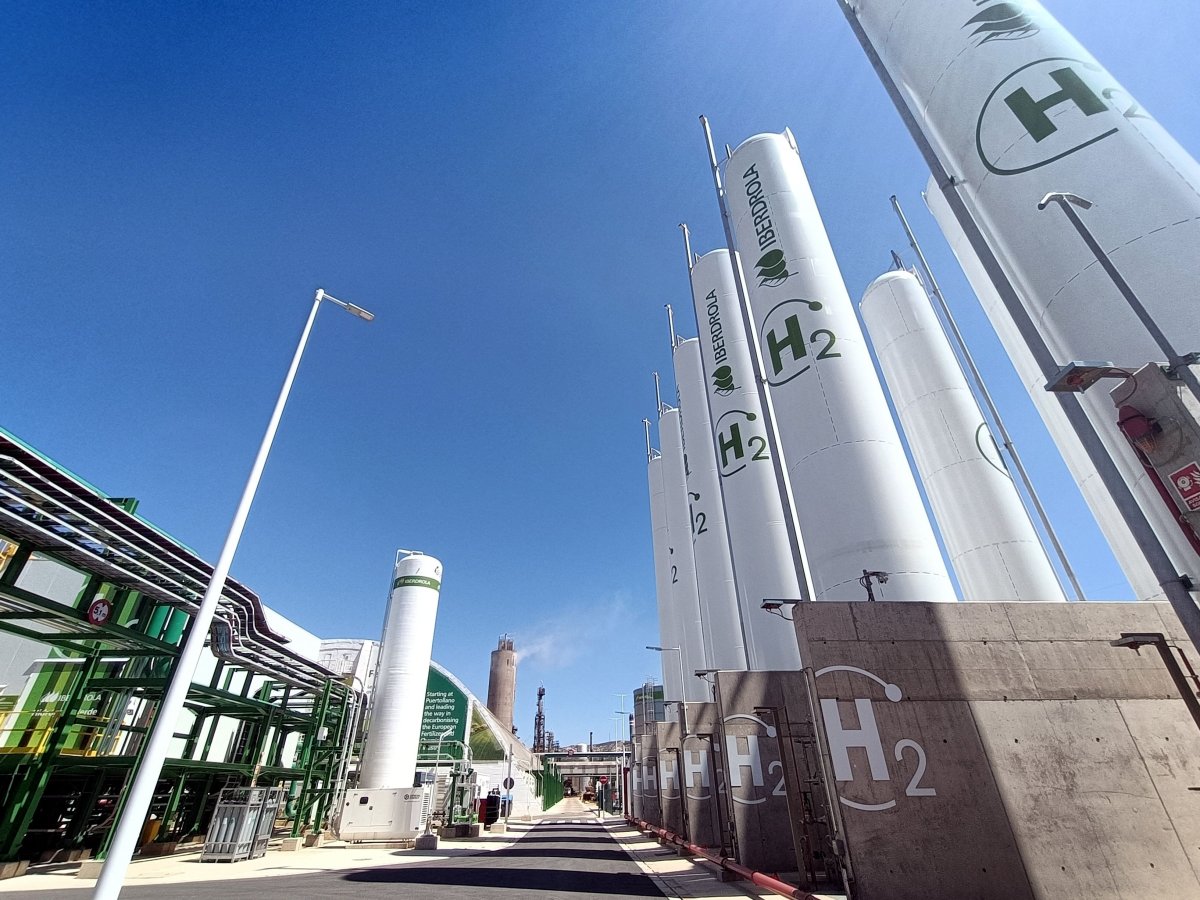In a closely watched climate decision that could shape the emerging hydrogen energy industry, the Biden administration today proposed a rule for production tax credits that would require new sources of clean energy to produce hydrogen.
If it stands, the new rule would be a major victory for renewable energy advocates and companies betting on green hydrogen while preventing additional subsidies for the nuclear and fossil fuel industries.
"By adopting strong standards focusing on emissions intensity, the United States will secure a leadership position in the energy transition," Mississippi-based green hydrogen company Hy Stor Energy said in a statement applauding the new rule.

Solar advocates said that by restricting hydrogen subsidies to newly constructed clean energy sources the administration is also supporting the country's renewable energy suppliers.
"We're thrilled to see this critical guidance that will help drive demand for domestic solar manufacturing," Solar Energy Manufacturers for America Coalition Executive Director Mike Carr said in a statement.
Representatives from the nuclear and gas industries, however, were outraged that the rule excludes other means of hydrogen production and expressed concern that the administration's approach will hinder the ability to scale up hydrogen.
"The proposed rule flies in the face of Congress' clear intent to use America's nuclear energy to produce hydrogen," a statement from Constellation Energy, the country's largest nuclear energy producer, said. Constellation warned that if the rule is finalized, "America will surrender" hydrogen leadership to other countries.
Senator Joe Manchin, a Democrat from fossil fuel-producing West Virginia, said in a statement that the rules represent a "radical climate agenda" and pledged to fight them.
"It makes no sense to kneecap the hydrogen market before it can even begin," Manchin said.
Technical rules on arcane tax credits rarely provoke such strong responses. But a closer look reveals that billions of dollars and a major part of the Biden administration's plans to fight climate change are at stake.
Defining 'Clean'
As the country attempts a clean energy transition, hydrogen is an important alternative fuel for heavy industries, shipping and other highly polluting parts of the economy that are difficult to decarbonize.
"Hydrogen has the potential to clean up America's manufacturing industry, power the transportation sector and shore up our energy security all while delivering good-paying jobs," Secretary of Energy Jennifer Granholm said in a release.
Hydrogen is clean when burned, but getting hydrogen in a pure form requires lots of energy. The fuel used to produce hydrogen determines just how clean it is in terms of the total greenhouse gases released.
Most hydrogen produced today is stripped from natural gas, releasing large amounts of carbon dioxide. Hydrogen can be produced in a cleaner way by the electrolysis of water, but that process is expensive and energy intensive.
In October the administration announced $7 billion in federal funding for seven "clean hydrogen hubs" around the country. The hubs include proposed facilities that would produce hydrogen with mix of renewable energy, hydroelectric, nuclear power and natural gas with carbon capture technology.
The Inflation Reduction Act includes generous subsidies for clean hydrogen in a section called 45V. It was up to the Treasury Department to further define "clean" and determine which types of hydrogen electrolysis production would qualify for the 45V tax credits.
Additional Power
The rule the Treasury Department proposed today follows advice from leading clean energy researchers on hydrogen production that would do the most to combat climate change.
Researchers said hydrogen electrolysis should be powered by newly built clean energy sources, a concept they call additionality. Using existing wind or solar for hydrogen would divert that clean energy from other uses on the electric grid and thus reduce the climate benefit.
But the additionality requirement cuts out the possibility of subsidies for hydrogen produced with nuclear power, which has few prospects to build new reactors any time soon. A spokesperson for Constellation said the company will use the upcoming 60-day comment period to try to persuade the administration to carve out an exception for hydrogen produced with nuclear power.
Clean energy advocates, on the other hand, want the administration to defend the rule as it is.
"The administration will need to hold firm during the comment period," Wilson Ricks energy researcher at Princeton University's ZERO Lab told Newsweek in an email. "If it does so these rules will help ensure that the 45V credit is only awarded to hydrogen production that is truly clean," he said.
Update 12/22/2023, 11:30 a.m. ET: This article was updated to include a statement from Senator Joe Manchin.
About the writer
To read how Newsweek uses AI as a newsroom tool, Click here.



